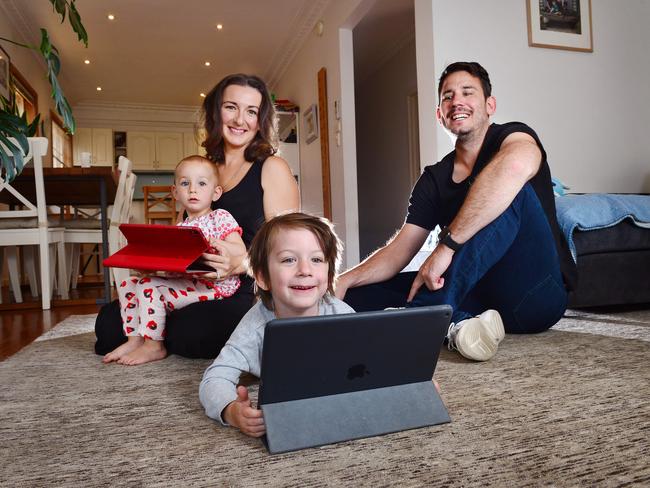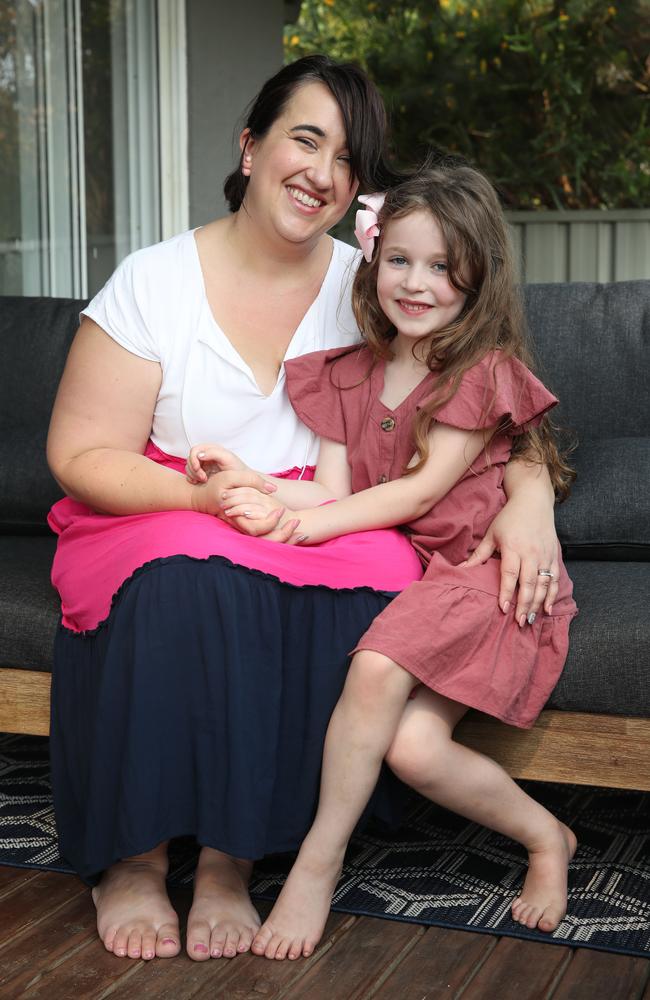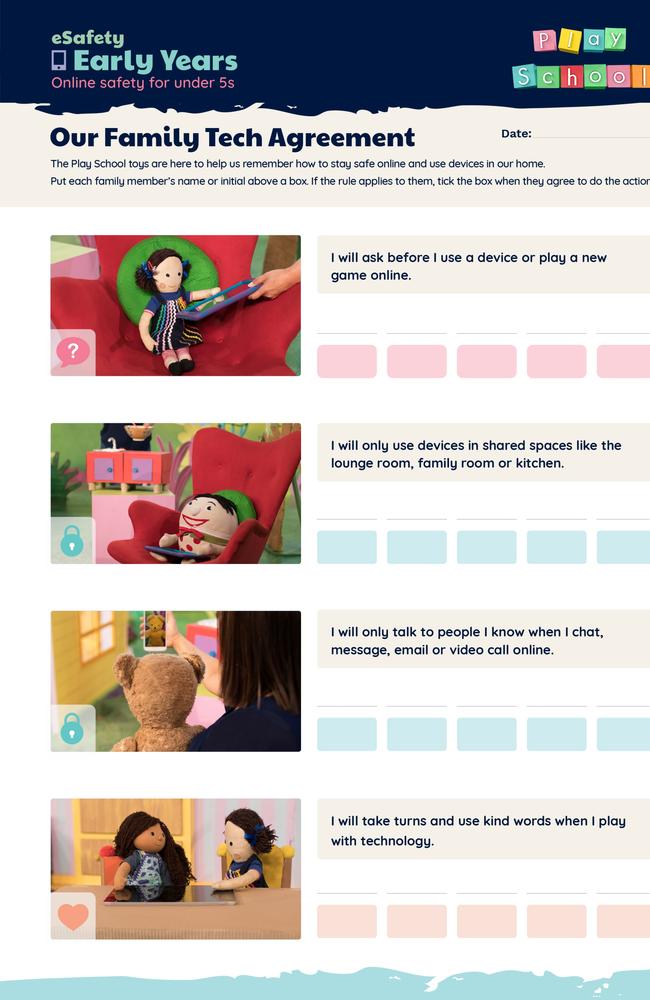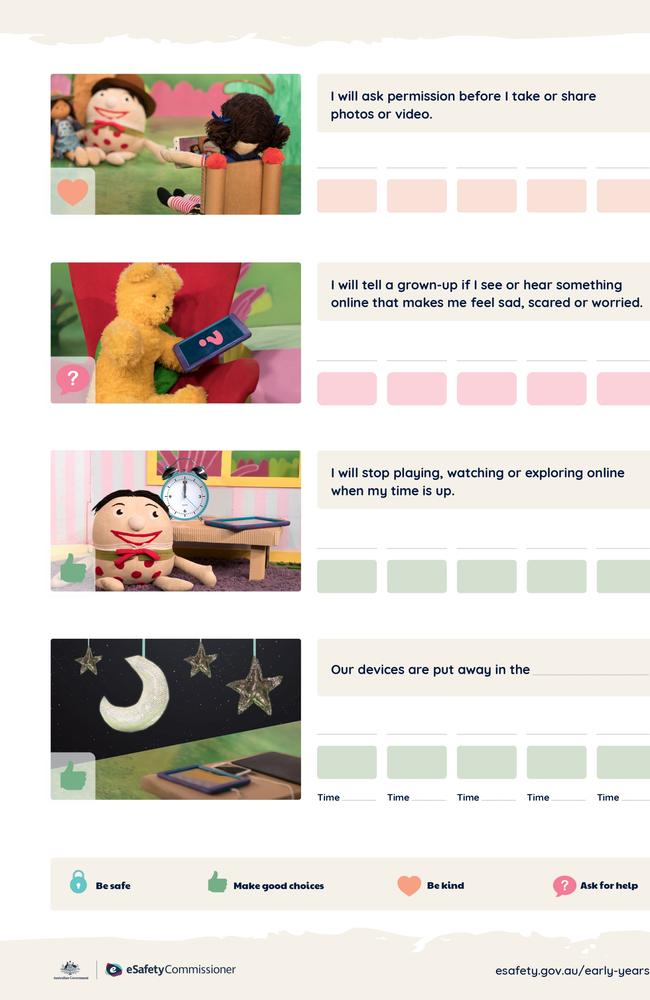Tech tips to protect kids from online predators: Play School characters in eSafety campaign
As parents struggle to manage their children’s online habits, one of the nation’s most popular children’s TV shows is on a mission to help teach preschool kids healthy tech habits.
Kids
Don't miss out on the headlines from Kids. Followed categories will be added to My News.
- ‘Die in a hole’: How TikTok is harming your child
- What happened when I posed as an underage girl online
Exclusive: Big Ted, Jemima and other Play School friends will be teaching toddlers and preschoolers how to avoid internet predators, to be kind online and healthy tech habits in a new education campaign by the federal government safety watchdog.
Experts say the recommendation of no screen time for under twos aren’t working anymore and parents and teachers need help teaching our youngest Australians learn how to navigate technology.

Australia’s eSafety Commissioner Julie Inman Grant said understanding online has to start early.
“It has to start in the home, parents can’t leave this to primary school,” she said.
“Online enticement and grooming is happening on these platforms that provide chat functions. “We need kids to use good judgment and make good choices and you can start these safeguarding and protective behaviours early and by the time they are eight or nine they know how to recognise a creep.”

The Early Years campaign kicks off this week with a ‘Family Tech Agreement,’ which can be downloaded onto digital devices from the eSafety Commissioner’s website.
Using Play School characters, it encourages children to agree to tech household rules such as using kind words when playing with technology, only talking to people they know and letting grown-ups know if they see something scary.
More resources will roll out through 2020 aimed at children under five, their families and early childhood educators, including professional learning modules for childcare centres.
Rules from the Family Tech Agreement include asking before using a device or playing a new game online, only using devices in shared spaces of the home and only talking to people you know online.

Research done by eSafety’s research found 81 per cent of parents with preschoolers say their children use the internet and of those 94 per cent said they were using the internet by the age of four and 37 per cent of Australian parents think their preschooler spends too much time online.
National peak body Early Childhood Australia (ECA) worked on the campaign along with ABC Children.
ECA’s Dr Kate Highfield told News Corp Australia it was clear parents and educators were all struggling to navigate tech space for kids.
“The tech genie is out of the bottle, many children are immersed in a digital world and helping children navigate that space in a way that is healthy, balanced and harnessing the education potential, without engaging the negative effects, is really important,” she said.
“The old argument of screen time is no longer working. We need to look closely at how that time is spent. For example, half an hour of appropriate screen time when you are co-viewing with your 18 month might be beneficial.”

Dr Highfield said Australia was leading in this space, recognising that research is needed so parents can lean on their early childhood educators for support in terms of what tech can be beneficial for under-fives.
“And many teachers are grappling with how to use it as well. This will help go beyond the argument of no screen time.”
She said this generation of parents were the bridging generation – the first parents to have children growing up with tech – but didn’t have it themselves through their own childhood.
“This is a new space but we had the same concerns with the printing press, radio, TV – this is particularly challenging for parents because the tech is mobile and so more available.”
MORE NEWS
Harry and Meghan ‘should pay for security’ in Canada
Aussie caught in ‘surreal’ volcano explosion
Biggest global military op helping Australia as fires burn
Ms Inman Grant said studies had shown the benefits of including children in the decision making process.
“So you are helping set the right balance and hopefully preventing tech tantrums in the future,” she said.
The difference between television and online, she said, was that parents often don’t have a line-of-sight into what children are consuming.
“It is the quality of content that really matters.”
Mother of two Julia Germon said she is very strict with her one and four year olds with screen time and would definitely be using the Family Tech Agreement.
“They are so little so I control the content, I have the passcode and I am trying to keep as much control while I can,” she said.
“But I know that apps are developed to be addictive and that is a bit scary. It will be really handy to have guidelines that come from a trusted source.”
This week the federal government also announced new funding for an online tool to help identify best online practice for children and parents, and Minister for Communications, Cyber Safety and the Arts, Paul Fletcher MP, said it is clear that healthy habits with digital devices must now start early.
“I encourage families to download the Family Tech Agreement and start these conversations about online safety from a young age.”
